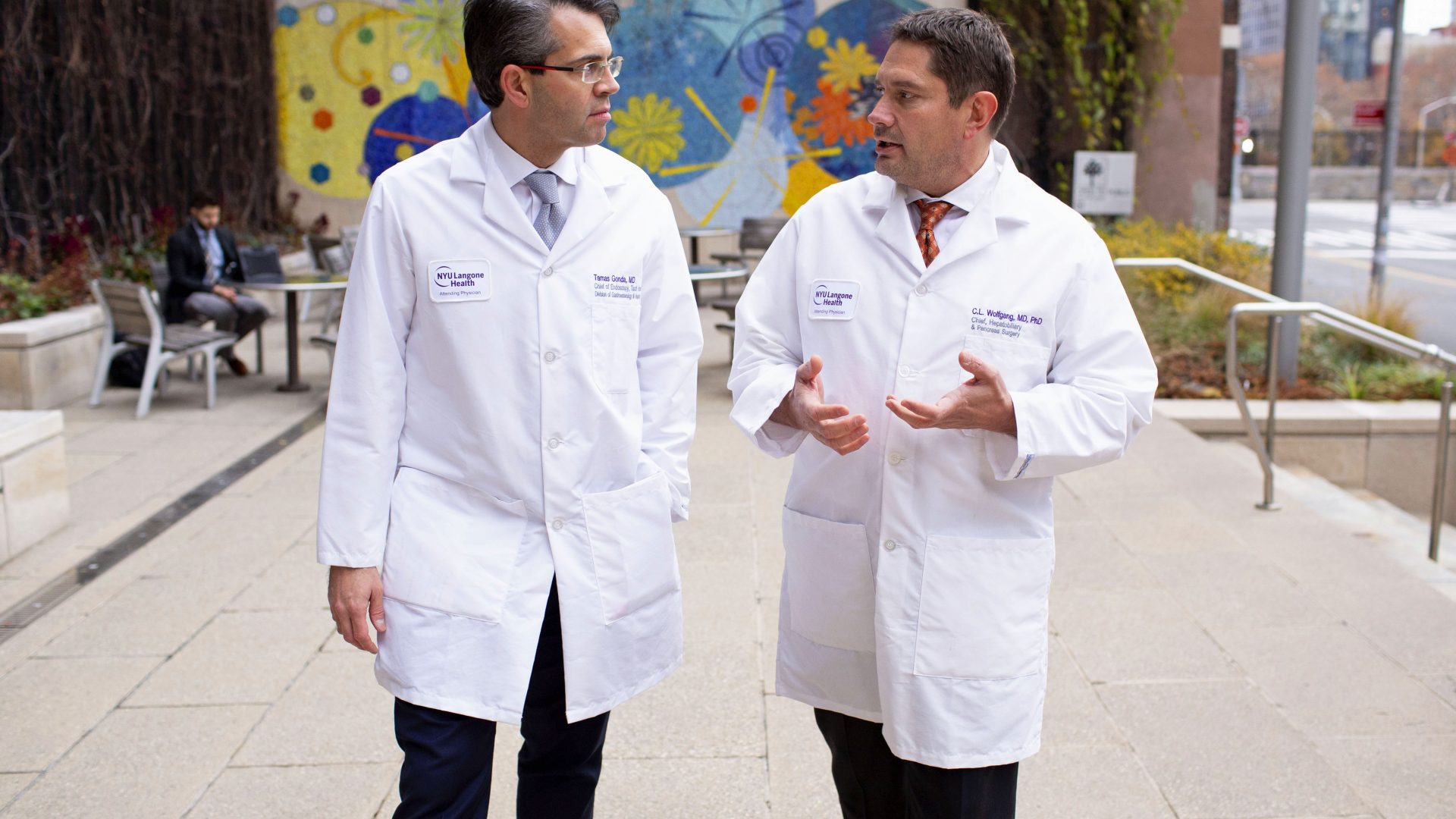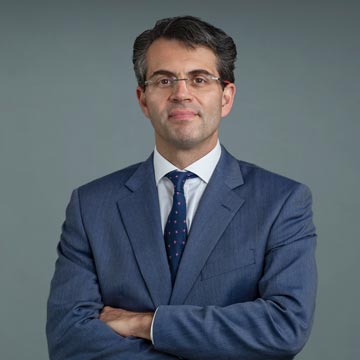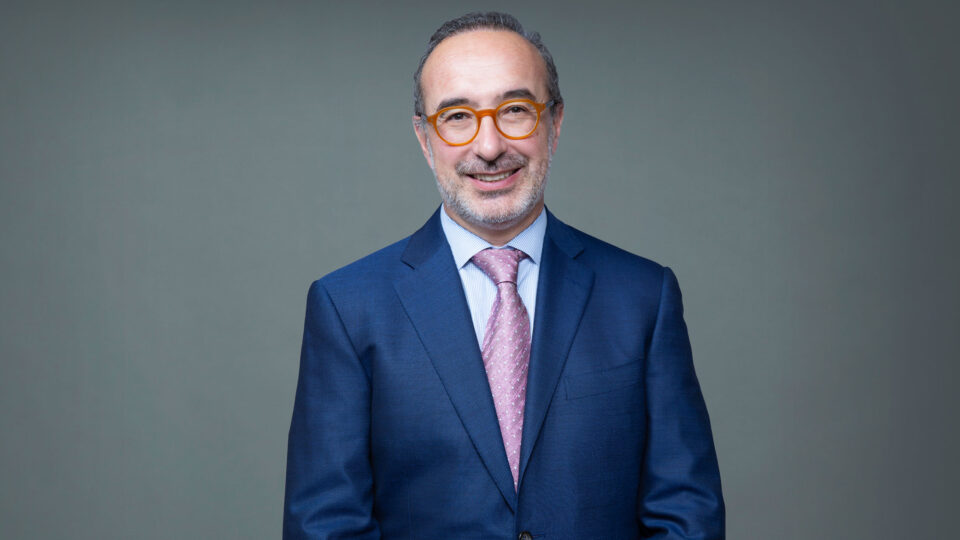In this joint interview, Tamas A. Gonda, MD, director of the Pancreatic Disease Program, and Christopher Wolfgang, MD, PhD, chief of the Division of Hepatobiliary and Pancreatic Surgery, discuss advancements shaping pancreatic cancer care at Perlmutter Cancer Center. They share insight on how novel biomarkers and endoscopically delivered ablation therapy are impacting detection and treatment, and stress the importance of tumor biology when pushing the limits of surgical resection.
Progress in Early Detection
Physician Focus: What advancements are on the horizon to improve early detection of pancreatic cancer?
Dr. Gonda: Biomarkers are certainly thought of as being the future of early detection, making it less invasive and broadly available. There is tremendous excitement in this area.
One of the promising biomarkers is actually the early detection of diabetes, especially new-onset diabetes. In collaboration with Lauren H. Golden, MD, and the Center for Diabetes and Metabolic Health, we are learning that following people who newly develop diabetes may lead to identifying individuals at risk for pancreatic cancer.
Endoscopic imaging has improved and evolved, and novel imaging modalities keep being developed that increase the sensitivity of this technique. I personally think the addition of molecular imaging—being able to detect certain molecular changes by imaging—will be a game changer.
Dr. Wolfgang: Liquid biopsy will also improve early detection. Tumors shed DNA, proteins, and vesicles into the circulation. Doing a blood test and being able to detect low levels of mutant DNA, abnormal protein expression, or vesicles that contain abnormal material holds future promise for a liquid biopsy test.
Guiding Treatment with Composite Biomarkers
Physician Focus: Dr. Wolfgang, you are involved in projects using artificial intelligence to develop blood-based tests for pancreatic cancer. What is your hope for this research?
Dr. Wolfgang: When we resect tumors, we leave systemic disease behind. My research is focused on understanding this minimal residual disease, which manifests as circulating or disseminated tumor cells.
Consider a patient who fails neoadjuvant treatment, but we don’t learn that they’ve failed until they progress and are no longer a surgical candidate. If we develop a blood test in which we could know after a few weeks whether the therapy was working or not, we would be able to adjust therapy in real time and get many more people to a potentially curative surgery.
In developing these tests there are several factors to consider, including mutations in cell-free DNA and abnormal protein expression or secretion, and thousands of parameters. We are using machine learning to look for correlations between those thousands of data points and outcome.
“If we develop a blood test in which we could know after a few weeks whether the therapy was working or not, we would be able to adjust therapy in real time and get many more people to a potentially curative surgery.”
Christopher Wolfgang, MD, PhD
Minimally Invasive Interventions
Physician Focus: Dr. Gonda, you are a national leader in endoscopically delivered ablative therapy. Can you tell us more about the promise of this treatment approach?
Dr. Gonda: For certain types of tumors of the pancreas and bile ducts, endoscopically delivering thermal ablation or radiofrequency ablation is maturing to be a reasonable treatment approach. While still in the early phases, I think it is going to be an important option for pancreatic neuroendocrine tumors and pancreatic premalignant lesions, such as cystic lesions.
Prevention is almost uniformly equal to surgical resection of a part or all of the pancreas. Endoscopic therapies, whether ablation or injectional therapies, may offer an alternative to surgical approaches. The promise of a minimally invasive approach, especially for pre-cancerous conditions, is very exciting.
Dr. Wolfgang: This is clearly cutting edge, and what makes this work is that at Perlmutter Cancer Center, we function as a multidisciplinary team. We’re not isolated within our specialties.
Dr. Gonda: I would second that. As we try to prove equal efficacy of these new less invasive treatments, it is critically important to be in that multidisciplinary discussion. There is no absolute answer to what the right treatment is for some of these patients, and that multidisciplinary discussion is what ultimately leads to the most reasonable and rational decision.
“There is no absolute answer to what the right treatment is for some of these patients, and that multidisciplinary discussion is what ultimately leads to the most reasonable and rational decision.”
Tamas A. Gonda, MD
Resecting Complex Tumors
Physician Focus: Dr. Wolfgang, would you speak to the innovations making it easier to successfully resect complex tumors?
Dr. Wolfgang: In the realm of making the unresectable resectable, there are two aspects: tumor biology and the technical aspects. You can do the perfect complex operation, but if you haven’t considered each patient’s unique tumor biology—that is, the propensity of an individual tumor for microscopic spread throughout the body—you’re not going to help that patient.
It’s not necessarily inventing new operations but having an extremely experienced team and pushing the limits of what can be done with surgery in a smart, safe way.
The Architecture of Excellent Care
Physician Focus: NYU Langone Health is now a National Pancreas Foundation Center of Excellence for both pancreatitis and pancreatic cancer. How does this designation influence innovation?
Dr. Gonda: As medical centers across the nation build focused pancreatic cancer programs, guidance from the National Pancreas Foundation in what is required for comprehensive care is critically important. Renowned pancreatic cancer experts, Drs. Alex Kimmelman, Paul E. Oberstein and Diane M. Simeone, and our numerous colleagues within the Pancreatic Cancer Center, have led the way, and it is exciting that we now offer the same level of multidisciplinary excellence for the care of other pancreatic diseases.
Read more from our experts in Gastroenterology & GI Surgery







